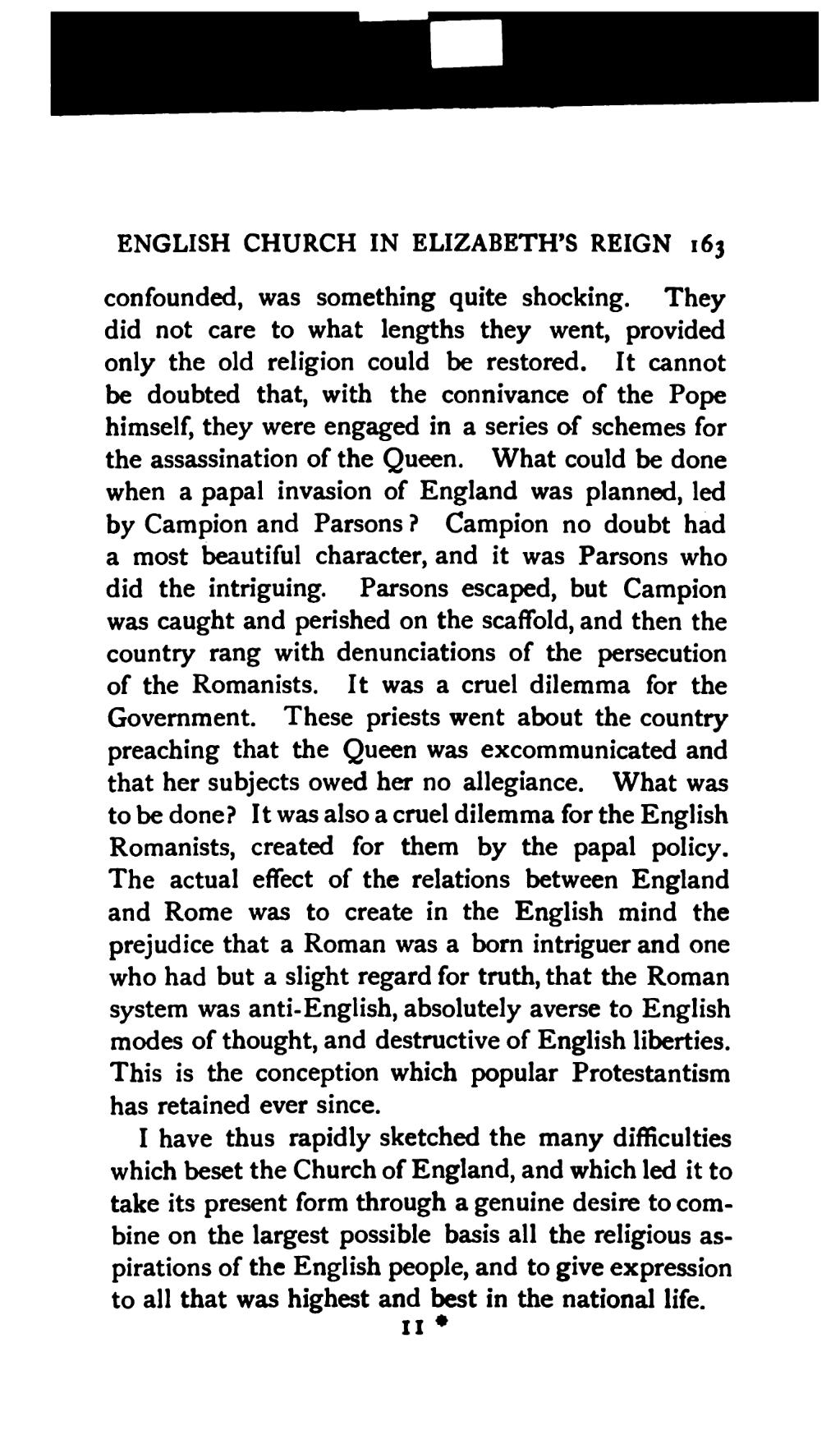confounded, was something quite shocking. They did not care to what lengths they went, provided only the old religion could be restored. It cannot be doubted that, with the connivance of the Pope himself, they were engaged in a series of schemes for the assassination of the Queen. What could be done when a papal invasion of England was planned, led by Campion and Parsons? Campion no doubt had a most beautiful character, and it was Parsons who did the intriguing. Parsons escaped, but Campion was caught and perished on the scaffold, and then the country rang with denunciations of the persecution of the Romanists. It was a cruel dilemma for the Government. These priests went about the country preaching that the Queen was excommunicated and that her subjects owed her no allegiance. What was to be done? It was also a cruel dilemma for the English Romanists, created for them by the papal policy. The actual effect of the relations between England and Rome was to create in the English mind the prejudice that a Roman was a born intriguer and one who had but a slight regard for truth, that the Roman system was anti- English, absolutely averse to English modes of thought, and destructive of English liberties. This is the conception which popular Protestantism has retained ever since.
I have thus rapidly sketched the many difficulties which beset the Church of England, and which led it to take its present form through a genuine desire to combine on the largest possible basis all the religious aspirations of the English people, and to give expression to all that was highest and best in the national life.
